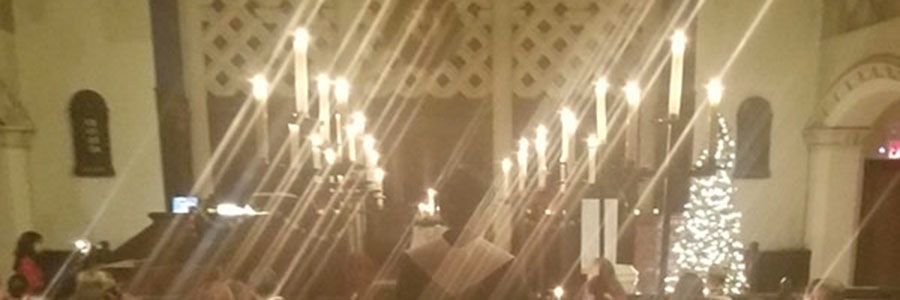
The people of Second Presbyterian Church are loving, caring, curious, and engaged in the world around us, seeking ways to bring our faith to life for the good of our community, our neighbors, and for generations to come.
We’ve been on this journey for 269 years (more than 10 generations) so far. Before there was an Upper West Side, a Central Park, a democratic government, or a public school system in New York City, this community has been bringing faith to life. Our ancestors include Catherine Ferguson, a brilliant woman whose ministry was recognized and supported by our early leaders who worked with her in purchasing her freedom from slavery and establishing the first Sunday School in New York. They include John Mitchell Mason, pastor and theologian, a mentor to Katie Ferguson, and a co-founder of the institution that became Union Theological Seminary, a bastion of progressive theological education. The legacy of our past, like that of all churches, isn’t perfect, but it has always focused on generations to come, through the education of children and the preparation of leaders of faith.
We recognize that we are living in challenging times. We see our calling as one that looks forward while acknowledging the past and living in the present. We are working to dislodge the grip of racism, inequity, and the destructive tendencies that have caused harm to the Earth, to all living things, and to our relationships within the human family. We do this because we believe God calls us to care most about those whom the world places on the margins. We do this because we believe that Jesus Christ set this example in his life and teaching and willingly gave his life for the sake of a broken world that we may be reconciled by God’s love. We do it because the Holy Spirit, the same Spirit breathed into the disciples by the risen Christ, urges us and prods us to do so.
Our Pastor
Rev. Thia Reggio joined us as our 13th installed pastor in 2022, and we’re excited about this new chapter in the life of our community. A graduate of Union Seminary in the City of New York, Thia earned both her Master of Divinity and a Master of Sacred Theology in 2012 and 2013 respectively. At Union, Thia was a fellow with the Poverty Initiative (now Kairos Center) and was involved from its inception with the Center for Earth Ethics, serving as co-chair of its Advisory Board, on which she still serves today. She also worked with Presbyterian Welcome (now Parity) in its efforts to secure ordination and marriage equality for LGBTQ Presbyterians, and with Presbyterian Disaster Assistance in its response to SuperStorm Sandy. Thia also served on the Presbytery of New York City’s Covid-19 Discernment Team and is a part of the presbytery’s Dismantling White Supremacy Task Force. Prior to seminary and the call to ministry, Thia had a lengthy career as a simplification specialist, taming complex interactions in the financial, healthcare, insurance, and not for profit world for the lay person to understand. She is the mother of three young adult children, Anna, Sam, and Ben, by whom she feels especially blessed.
Rev. Thia Reggio, Pastor
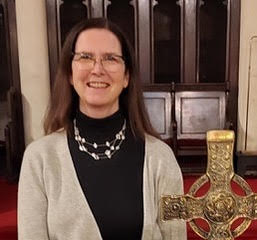
Pastor: (212) 749-1700
pastorthia2ndpresbyterian@gmail.com
Virtual Office Hours: Monday, Wednesday, Friday 10 AM – 4 PM
In-Person: Wednesday afternoons, by appointment
Our Staff
Eunjung Ahn, Minister of Music
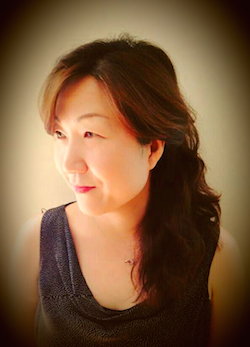
Eunjung Ahn brings to Second Presbyterian Church her years of church music experience as both conductor and organist. Ms. Ahn holds a Master of Music degree in Organ Performance from Westminster Choir College and received her Bachelor degree in Church Music from Nyack College. She is an accomplished solo performer and accompanist on both organ and piano. She has accompanied performances of large choral works with numerous choral groups including the New Jersey Philharmonic Orchestra, Peniel Concert Choir, Good Neighbors Chorus, and NVOT High School Choir. She served as music director at Disciple Methodist Church Choir, Palisades Youth Chorus, and served as organist of First Presbyterian Church in Ridgewood, NJ. During that time she directed and accompanied the Chancel Choir in a variety of works from diverse musical periods. She studied handbell ringing technique and harpsichord at Nyack College.
Ms. Ahn maintains a private music studio where she gives piano and organ lessons and offers students concerts in various places. She is a member of the American Guild of Organists (AGO).
Virginia Danner, Office Manager & Space Use Coordinator
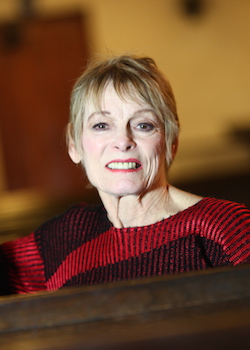
Office Manager: (347) 918-7914
vdanner@secondpresbyteriannyc.org
Office Hours: Tuesday – Friday, 11 AM – 2 PM
The Session
- Rev. Thia Reggio, Moderator
- Nancy Hughes, Clerk of Session
- Class of 2026: Gordon Bakoulis, Clayton Young
- Class of 2027: Ed Carpenter, Susan Gordon-Clark
- Class of 2028: Karen Amrhein, Constance Campbell, Judith Thatcher
Board of Deacons
- Class of 2026: Meg Fox, Susan Gordon-Clark
- Class of 2027: Barbara Quick, Maxine Soares
- Class of 2028: Ken Threet, Barbara Winn
Officers of the Corporation
- President: Bruce Ewing
- Secretary: Nancy Hughes
- Treasurer: Clayton Young
Our History
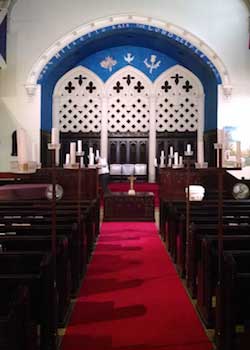
Founded in 1756, when members of New York’s earliest Presbyterian congregation seceded over a disagreement about Psalm tunes, the “the Scotch Church” met initially in members’ homes. Despite fractious beginnings, the church played a significant role in the evolution of the city and the nation.
Its first pastor, the Rev. John Mason, was banished from New York for his anti-royalist publications and served as a chaplain to the Continental Army during the American Revolution. After the war, he returned to the Scotch Church.
“Whosoever shall do the will of my Father, the same is my brother, sister, and mother.” With those words, Rev. Mason welcomed 15 year old Katie Ferguson to the communion table. In 1789, she became the first black member of the church. When Katie was eighteen, she began New York’s first “Sabbath School” in her home -- not “Sunday School” as we know it today, but a school for poor children who had to work on weekdays.
1789 also marks the year that church elder, Alexander Robertson, donated a house and lots on Pine Street for a coeducational elementary school – the city’s first – that now bears his name.
Our second minister, the Rev. John M. Mason, founded the first Presbyterian theological seminary in this country which incorporated into Union Theological Seminary in 1836. Church members were among the founders of such institutions as New York University and Presbyterian Hospital.
As the city spread northward, the congregation moved to locations including Crosby Street and 14th Street, meanwhile merging with the First Reformed Presbyterian Church and Knox Presbyterian Church. In 1917, it changed its name officially to Second Presbyterian Church.
Our Building
Having marched up the island of Manhattan as demographics changed, we built a church and school on the present block at Central Park West and 96th Street, in the early 1890s. Legend has it that subway construction weakened the foundation of the church. In 1928, an agreement was made with a developer for a residential building, designed by Rosario Candela, with a new church (our 6th) and school in its base.
Historic plaques and memorials traveled uptown with us to the present building, which houses both the sanctuary and the Alexander Robertson School. A stone plaque from the 1768 building is mounted on the East wall of the narthex, inscribed with the mottos of the congregation, “Hitherto hath the Lord helped,” and of the Church of Scotland, “The bush burned with fire, and the bush was not consumed” (in Hebrew).
Austin-Konzelman Organ
At the time of its dedication in 1930, the Austin Organ Company (Hartford, CT) Op. 1840 was one of the largest organs in New York City. In 1978, it was partially rebuilt and reduced in scope to better meet the needs of the space and the ongoing financial commitments necessary to maintain a pipe organ in excellent condition. James Konzelman (then with the Church Organ Company, Edison, NJ, and now proprietor of Konzelman Organs, Inc., Hoboken, NJ) supervised the project, which included the rebuilding of the great, swell and pedal divisions, and the re-voicing, addition and subtraction of many ranks throughout the instrument. Currently, the organ has 45 ranks and 2268 pipes. For more information, see the American Guild of Organists.
FAQs
Want to know more about how we worship and how we think about things? See Frequently Asked Questions.

